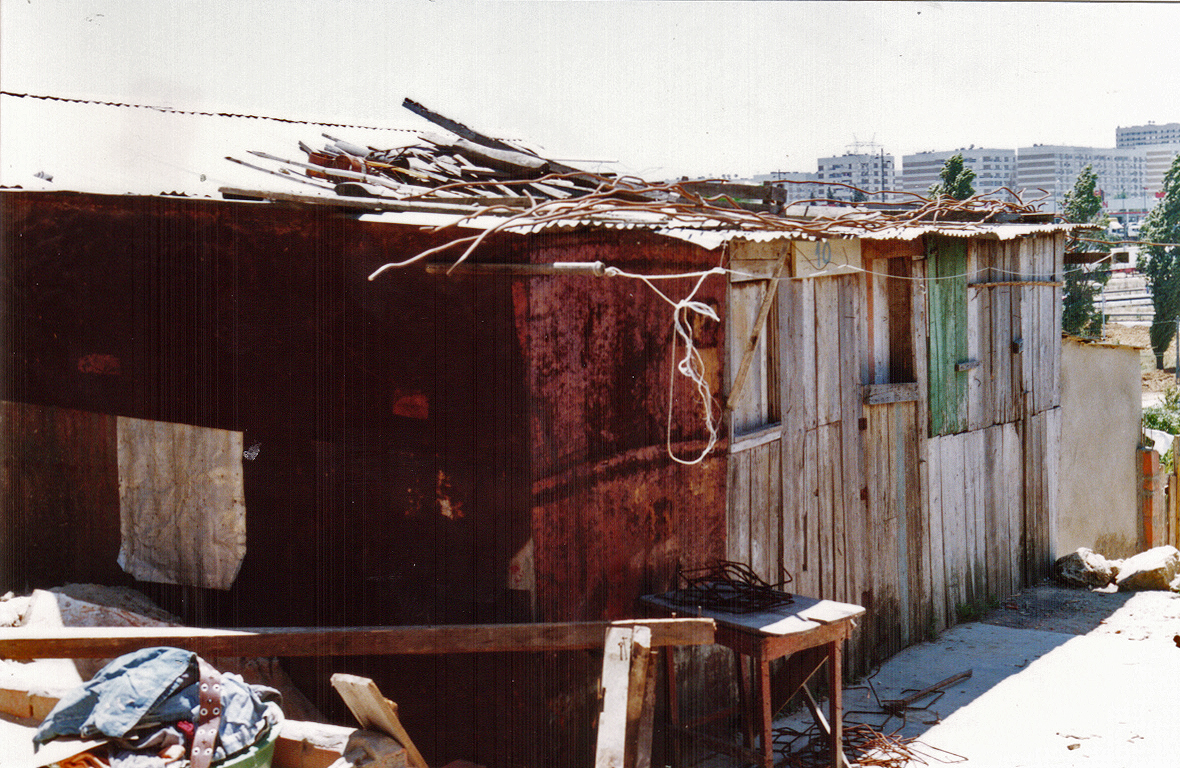
Technoscience of Slum Intervention
The place of the urban poor in cities has a long and contested history since the early 20th century. It has had to do with the capitalist expansion of the city, migration, colonialism, urban planning techniques, types of state intervention in informal settlements and other elements. It has had to do with the agency of urban poor populations in building their homes, their communities and their illegal/informal/squatted part of the city. In this website I provide glimpses of this history in the Portuguese-speaking landscape, related to cities such as Lisbon, Rio de Janeiro, Maputo, Bissau and Macau. Click on the city images and find out more.

The Quinta da Serra informal settlement in Lisbon, 1989. Photo by Father Valentim Gonçalves.
The place of the urban poor in cities has a long and contested history since at least the early 20th century. Where and how are they located in the city are the overarching questions of a history that has had to do with the capitalist expansion of the city, migration, colonialism or segregation, and which has been carried out by way of, among others, different urban planning techniques and types of state intervention in informal settlements. Such history has also had to do with the agency of urban poor populations in building their homes, their communities and their illegal/informal/squatted parts of the city. The latter, after being tacitly accepted in moments of urban expansion, become in a second moment the object of intervention and are operated by the scientific instruments of statistics, planning, engineering, architecture, social initiatives and others, with a view to be improved or eradicated.
This second moment is the central object of this research, which aims to reflect on the types of slum intervention projects, from late 19th century slum clearance to land titling programs, participatory architecture, slum upgrade initiatives, projects of material and social rehabilitation of informal settlements or police and para-military intercessions in the informal city. In this website I provide glimpses of this splintered history in the Portuguese-speaking landscape, related to cities such as Lisbon, Rio de Janeiro, Maputo, Bissau and Macau.
The website is based on an individual research project funded by the Portuguese Foundation for Science and Technology [grant n.: SFRH/BPD/95805/2013]. It draws from archival research, analysis of the socio-technical innovations different disciplines have engendered to deal with the informal city, and from an ethnographic look into the informal knowledges and low-fi technologies used by different urban poor populations in different cities at different historical times.
Click on the images in the homepage and find out more about intervention types as well as about specific informal settlements in different cities.
Suggested citation:
Eduardo Ascensão, research website www.technoscienceslumintervention.org, (last accessed on day/month/year).
